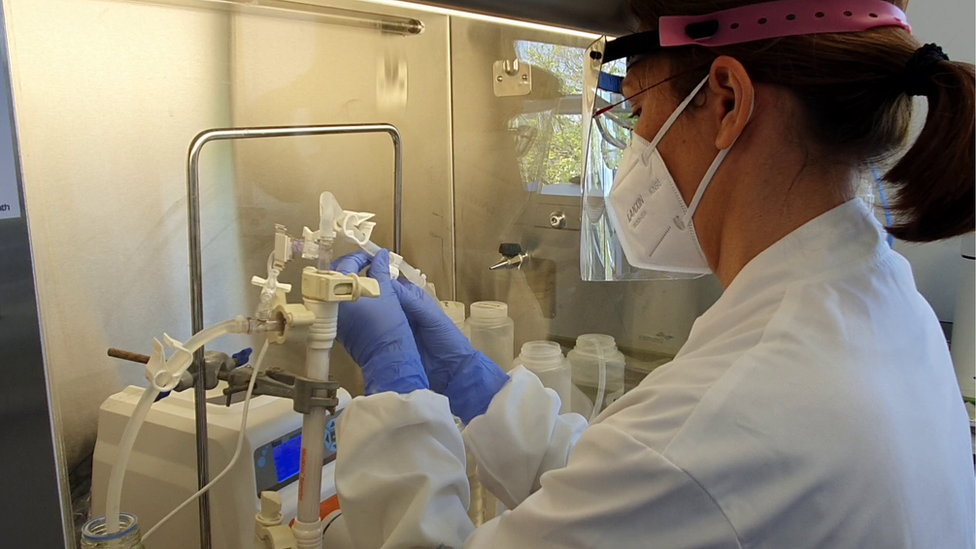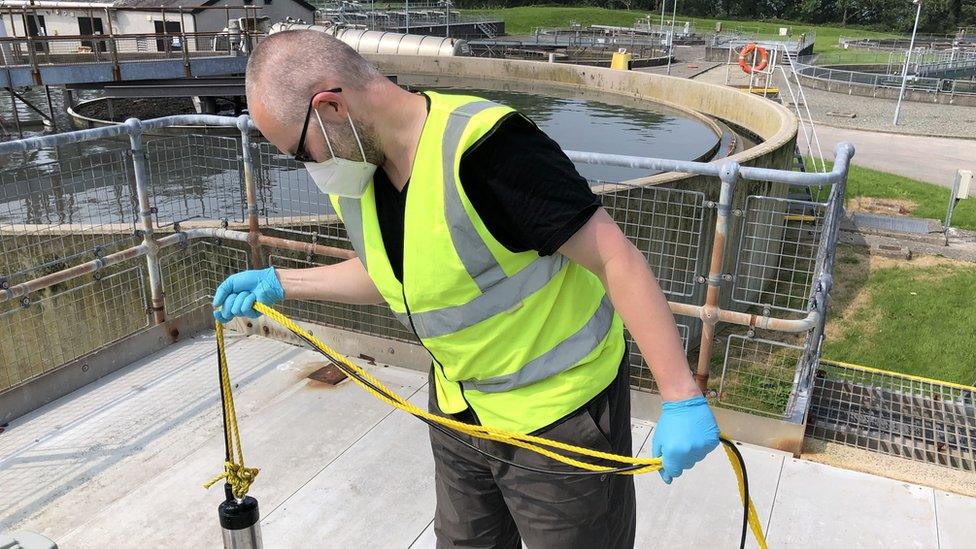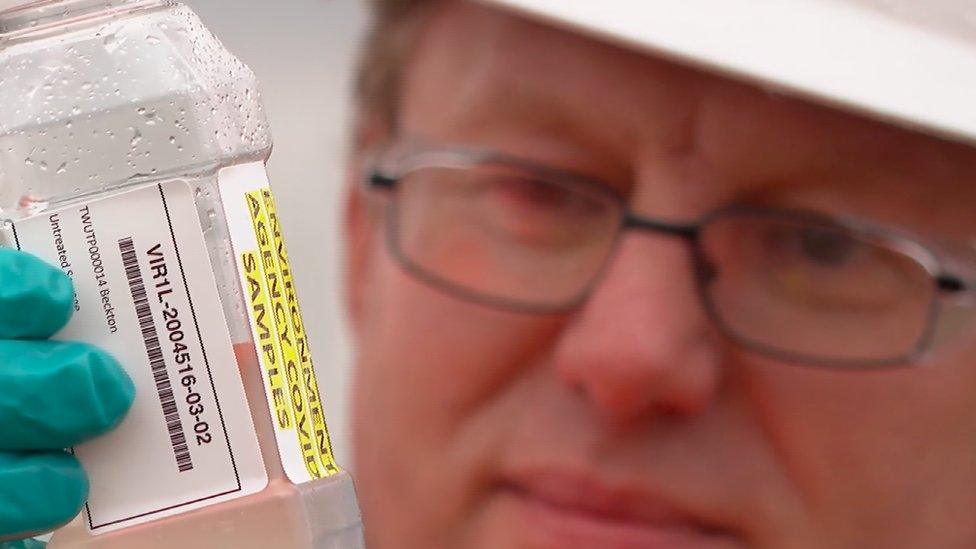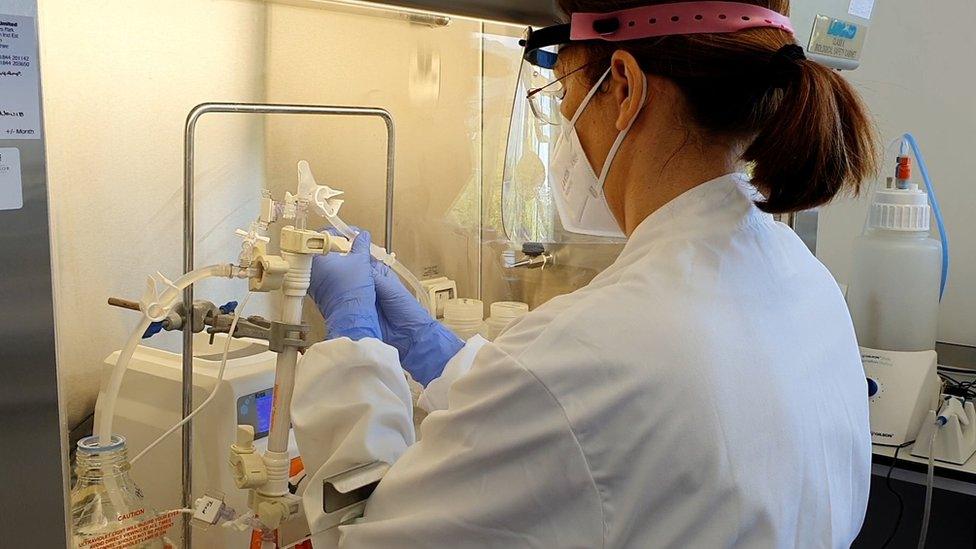Coronavirus infection spikes found in Welsh sewage study
- Published

Samples of sewage across 20 sites in Wales are tested for SARS-CoV-2
Detection of spikes in coronavirus in Welsh communities have come through a sewage system study, it has been revealed.
The pilot Bangor University research programme measures the virus found in waste water at 20 sites in Wales, which cover 80% of the population.
The virus SARS-CoV-2 is commonly found in faeces that has been recovered.
Welsh university researchers were the first in the UK to start analysing the virus in major urban centres.
Health minister Vaughan Gething said the study is "capable of providing an early warning notification" of community coronavirus infection levels.
However, the World Health Organisation has said there is no evidence however that coronavirus is spread via sewage systems.
The study was also used in the first lockdown and the data is shared with the Welsh Test Trace Protect system to locate new outbreaks.
Prof Davey Jones, who is leading the School of Natural Sciences study, said the researchers are now working to track coronavirus at both a local and regional scale.
"Viral levels in wastewater mapped really well onto the success of lockdown measures in the first Covid-19 wave and to the emergence of the second wave," he said.
The 20 testing sites are in Cardiff, Dinas Powys, Gowerton, Llanelli, Abergavenny, Newport Nash, Bridgend, Ponthir, Swansea Bay, Haverfordwest, Carmarthen, Queensferry, Holyhead, Chester, Bangor, Wrexham, Rhyl, Llandudno, Llangenfni and Flint.
In addition to Covid-19, the systems will also be able to detect the presence of other types of respiratory viruses, noroviruses and hepatitis.

The samples at waste water sites cover 80% of Wales' population
A second waste water project is under way at Swansea University, which aims to develop a sampling and reporting device to predict the outbreak of coronavirus infections.
The programme is led by Bangor University, working with Cardiff University, Public Health Wales and Dwr Cymru Welsh Water and it has been awarded almost £500,000 of Welsh Government funding.
Related topics
- Published23 October 2020

- Published5 May 2020
